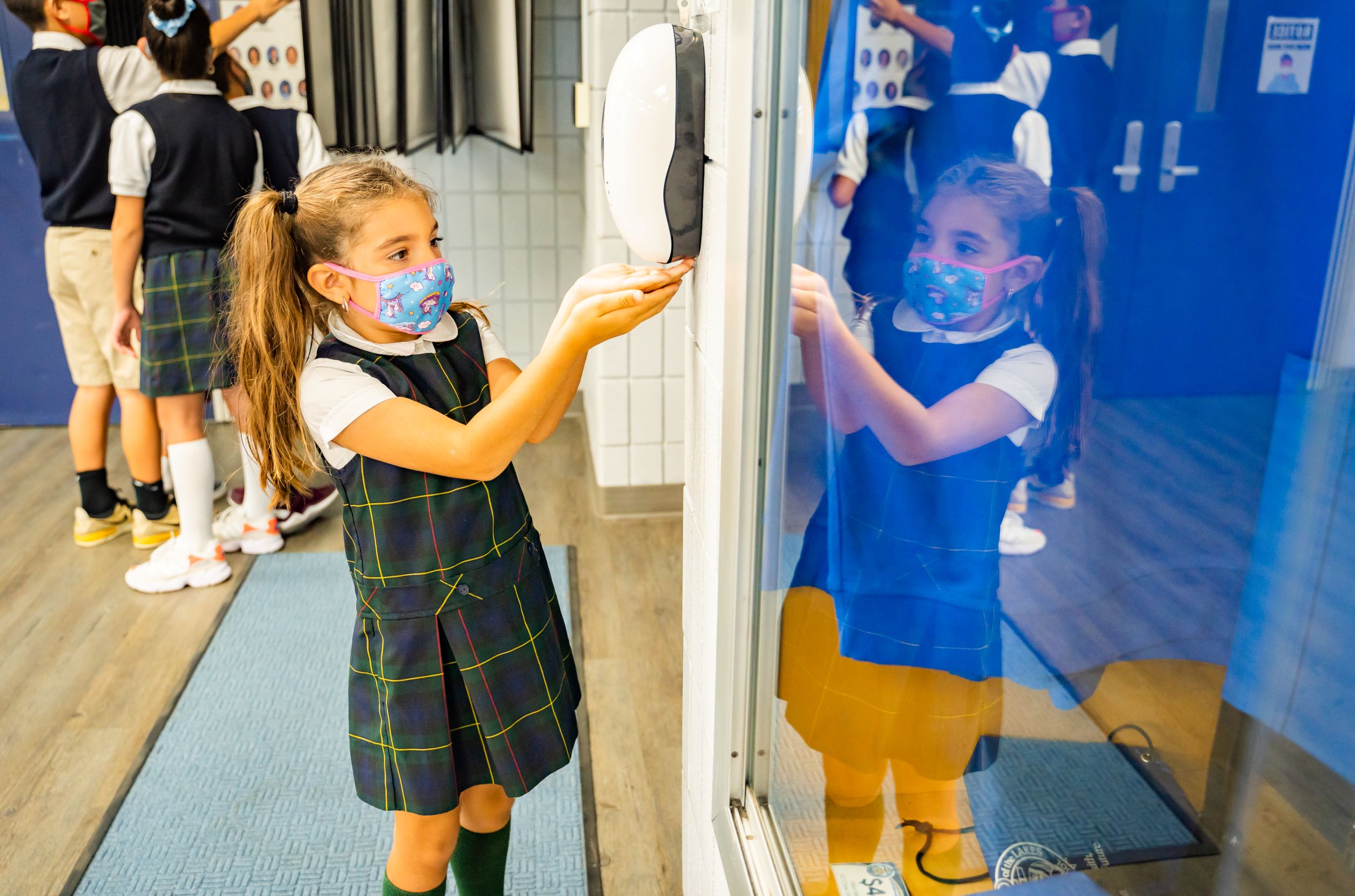A wise person once said, “We don’t see things as they are, we see them as we are.” The older I get, the more I understand that. As we move toward the opening of another school year in the Catholic school classroom, I’m moved to reflect on the previous year, and look in anticipation to the new one. A good place to start is “perspective.”
Last year was difficult, to say the least. I had two perspectives — one as a parent of two daughters at St. Catherine of Siena in Wixom; the other as a teacher at St. Mary’s Preparatory in Orchard Lake. What I experienced was a lot of selflessness and tenacity — tenacity from administrators bent on seeing to it our kids had as “normal” an experience as possible, and selflessness from teachers who worked harder than usual at finding ways to help them do that.
No one would argue the last year has been a challenge unlike any we’ve seen in recent times. Not one of us escaped it. Whether it was a loved one who died of COVID, a friend heroically working on the front lines, or an elderly loved one who struggled through isolation, we’ve all had battles to face. What defines us is how we’ve faced them. Our perspective has much to do with that.
For a year now, we’ve been navigating this landscape. But the way we’ve navigated it has largely been driven by how we, as a culture, view our faith in God — or the lack thereof. In his book, “He Spoke to Us”, Fr. George Rutler sums it up, when he writes: “A culture trapped in its own existence becomes no greater than itself.” Moreover, “a man wrapped up in himself becomes a very small package.”
When my students and I discussed the state of the world recently, I realized a few things: When I teach them, I’m often preaching to myself. And when we encounter setbacks, the way in which we tackle them defines who we’ve become.
We live in a world that has largely lost its faith. That’s not a judgmental statement, just a fact. When our culture loses its faith in God, it will find something else to fill that void. And we’ll tend toward that “filler” with as much veracity as we would have our faith years before. If our culture believes this life is all there is, is it any wonder the lengths it will go to preserve it or the depths of fear it will entertain to keep us from dying? Of course, the problem with that is that when we’re that afraid, we really aren’t living at all.
This past year, I’ve been blessed to teach at a school — and my daughters have been blessed to attend a school — that made great efforts to ensure the safety of its students and faculty, while also forging through that fear that can be so strapping. The result has been to see our Catholic school students having a bit more “normalcy” than they could have. My heart goes out to students who haven’t. And I worry they’re experiencing the effects of a pervasive fear that has gripped our secular world.
“God did not give us a spirit of fear but rather of power and love” (2 Timothy 1:7). Nor does that mean we remain less than prudent in the face of a pandemic. What it means to me, and what it spells out in “Unleash the Gospel,” is that we recognize the dangers in “scientific fundamentalism” and respond to events using the “core virtues” our Church provides us. In short, we work toward the safety of our students and staff, and allow God to help us find success. “Ora et Labora.”
Now, as we approach the beginning of the new school year, I’m told that many of our Catholic high schools have waiting lists. Perhaps that’s a testament to how our administrators have handled this crisis and how that’s been evident to our culture at large.
“Pray, hope, and don’t worry.” St. Padre Pio’s words resonate more than ever today, albeit the latter part of that statement might be difficult for some. But love casts out fear. And courage doesn’t mean we ignore fear, but we forge through it. I’ve no doubt our Catholic school administrators and teachers will be just as vigilant this year as they were last at ensuring our kids have the best year possible. And I’m confident that’s a perspective they’ll look back on for years to come.
Paul Stuligross is a retired police officer. He currently teaches theology at St. Mary’s Preparatory High School in Orchard Lake.










